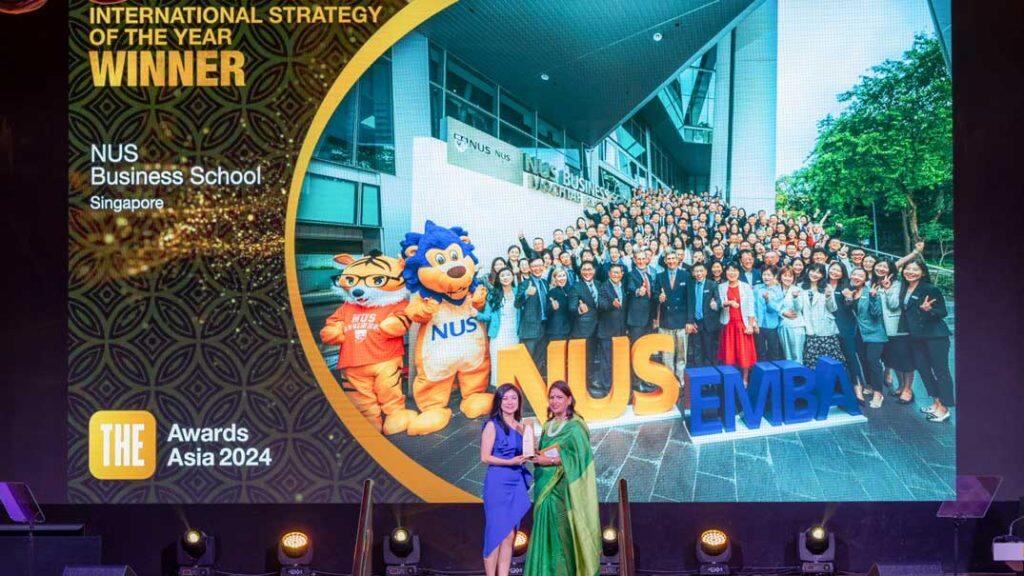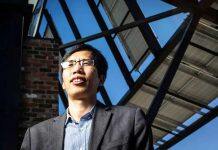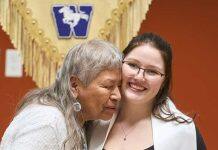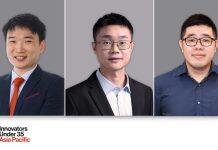

NUS teams behind the interdisciplinary initiative “Managing Aggression using Immersive Content (MAGIC) – A Blended Learning Experience using Virtual Reality” and the NUS Business School’s Executive MBA-Chinese Programme took home the “Teaching and Learning Strategy of the Year” award and the “International Strategy of the Year” award respectively at the recent Times Higher Education (THE) Awards Asia.
Widely dubbed the “Oscars of Higher Education”, THE Awards Asia celebrates outstanding work across a wide range of university functions covering academia, leadership and management, and the professional services in the region.
The first of its kind in psychiatry, MAGIC is a learning pedagogy that uses a suite of blended-learning techniques to equip medical students with skills to manage and calm agitated patients.
“We were pleasantly surprised and excited with our first THE Award for Teaching and Learning Strategy as co-investigators in KL, Malaysia! There was stiff competition posed by other fellow finalists, all presenting neck-to-neck quality submissions! MAGIC epitomises the innovation in reshaping the future of medical and healthcare education and was research-driven by Principal Investigator Assistant Professor Cyrus Ho and Assistant Professor Yong-Shian Shawn Goh together with NUS Department of Psychological Medicine, NUS Yong Loo Lin School of Medicine, NUS Alice Lee Centre for Nursing Studies, and the National University Hospital, alongside dedicated medical students. This interdisciplinary collaboration effort with NUS Information Technology (NUS IT) proves that teamwork truly makes the dream work. It has been a relentless journey, years in the making, and this international recognition is a testament to our grit and teamwork,” said Mr John Yap, Associate Director (Interreality Technology), NUS IT.
Added Asst Prof Cyrus Ho, “Moving forward, we will see more distressed patients, and healthcare workers need to have an empathetic response while collaboratively making decisions under pressure. By integrating virtual reality into our blended learning approach, we aspire to offer a more holistic educational experience to empower future generations of healthcare professionals with the essential skills to effectively manage agitated patients while practising empathy and compassion.”
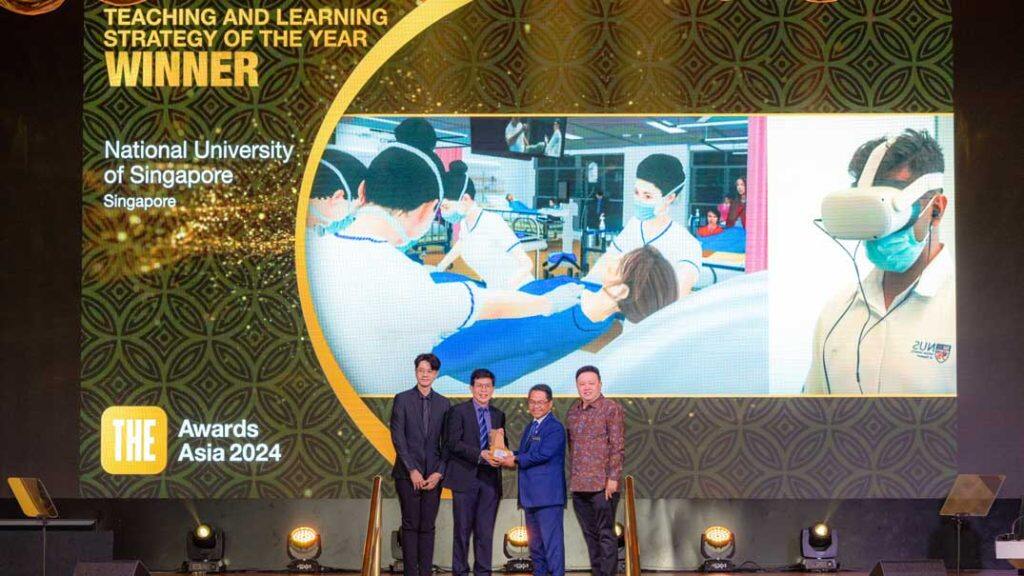

Efforts to position NUS Business School’s Executive MBA-Chinese programme as a “Gateway to the World” stood out among the competition. Directors of the programme adopted bold financial strategies, strategic global collaborations, innovative marketing campaigns and a comprehensive programmatic revamp to better attract international entrepreneurs and those with global business aspirations who will benefit from the Programme. This led to a growth in revenue, and the largest and most diverse course in the Programme’s history.
NUS Business School’s Professor Fu Qiang who led the team to innovate the Programme, said, “We endeavoured to explore how Chinese entrepreneurs should place themselves in the current volatile and complicated world and demonstrate one possibility.”
